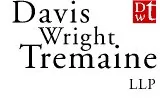Court Finds Alleged Parody Fails on Copyright Fair Use Factors but Passes Rogers Test to Avoid Trademark Liability
On December 18, 2020, the 9th Circuit held that the creators of a Star Trek/Dr. Seuss "mash-up" ventured beyond the edge of the fair-use universe by taking too much of Dr. Seuss's iconic illustrations. Dr. Seuss Enters., L.P. v. ComicMix LLC, 983 F.3d 443, 450-51. Although the court detected copyright infringement of Dr. Seuss's work, it held that the plaintiff's trademark claims did not scan.
As the opinion explains, a mash-up combines expressive elements from multiple sources, such as a film or book, and includes characters or situations from two or more previously published works. In a prelude to this case, the 9th Circuit previously held that fair use did not protect another Seuss-based mash-up by different authors: a retelling of the O.J. Simpson murder trial in the world of "The Cat in the Hat." Dr. Seuss Enters., L.P. v. Penguin Books USA, Inc., 109 F.3d 1394, 1399 (9th Cir. 1997).
Undeterred, ComicMix created a book titled "Oh, the Places You'll Boldly Go!" ("Boldly") that depicted characters, plot points, and themes from "Star Trek" using the structure, illustrations, and style of Dr. Seuss's classic children's book "Oh, the Places You'll Go!" ("Go"). Boldly's creators solicited funds on Kickstarter for an initial print run, but their plans were scuttled when the entity responsible for licensing Dr. Seuss's postmortem literary rights sent them a cease-and-desist, issued a takedown notice to Kickstarter, and brought suit. The suit alleged not only that Boldly infringed copyright, but also that its title and its use of "Seussian font" and a "Seussian style of illustration" infringed the plaintiff's trademarks.
The ComicMix defendants raised a fair-use defense against the copyright claim, arguing that the book was a parody or otherwise transformed the underlying works by critiquing or commenting on them. The defendants also claimed that the test in Rogers v. Grimaldi, 875 F.2d 994 (2d Cir. 1989) barred the trademark claim.
Thing One: Copyright
The panel unanimously sided with the plaintiff on the copyright claim, holding that Boldly was not transformative because it did not critique or comment on Go, nor subject Go to parodic ridicule. The defendants argued that Boldly implicitly commented on what they described as Go's "theme of banal narcissism" by revamping its story to feature mature "Star Trek" themes such as sexual innuendo, mortality, and the duty and sacrifice of adults working together on a crew. The defendants' brief cited literary analysis arguing that while Go claims to be a "'joyous ode to personal fulfillment[,]' ... what it really reads like is the yuppie dream-or nightmare-of 1990 in cartoon form."
The court, however, dismissed this as an "unconvincing" "post-hoc characterization," regarding Boldly as a derivative homage to-not a critical take on or parody of-Seuss's work.
Once the court found the work non-transformative, the gravitational pull of the plaintiff's copyright claim became inescapable. The court held Boldly used too much of Dr. Seuss's highly expressive work, and its distribution would harm markets for the original and licensed derivative works.
Notably, the court made clear that because fair use is an affirmative defense, the defendant has the burden to bring forward favorable evidence regarding relevant markets. The Boldly defendants argued that in Lenz v. Universal Music Group, the 9th Circuit had shifted the burden to the plaintiff by reasoning that "fair use is uniquely situated in copyright law so as to be treated differently than traditional affirmative defenses"-concluding that a copyright holder must consider fair use before sending a takedown notice claiming that its copyright has been infringed. ComicMix LLC, 983 F.3d at 459-60 (citing Lenz, 815 F.3d 1145, 1153 (9th Cir. 2016)).
The court, however, distinguished this reasoning as applying only in the context of the Digital Millennium Copyright Act's notice-and-takedown regime. While the court made clear that a plaintiff has no burden to prove market harm, it credited the plaintiff's extensive evidence that it had charged-and would continue to charge-licensing fees for authorized editions of other mash-ups of Go.
Thing Two: Trademark
While Boldly failed the test for copyright fair use, the court held it easily passed the Rogers test applicable to trademarks, under which the use of a trademark in an expressive work does not violate the Lanham Act unless it has "no artistic relevance to the underlying work whatsoever, or, if it has some artistic relevance, unless the title explicitly misleads as to the source or the content of the work." Twentieth Century Fox Television, a division of Twentieth Century Fox Film Corp. v. Empire Distribution, Inc., 875 F.3d 1192, 1196 (9th Cir. 2017) (quoting Mattel, Inc. v. MCA Records, Inc., 296 F.3d 894, 902 (9th Cir. 2002)).
The 9th Circuit held that the Seussian illustrations, font, and title were artistically relevant to the mash-up's depiction of Seuss works. In holding that the trademark claim failed the second prong, the court reasoned that the Boldly creators did not explicitly suggest a false endorsement in part because they "added ... expressive content to the work beyond the mark itself."
The opinion illustrates how courts have drastically cabined liability when trademark claims target the content of expressive works, even where that same content is held non-transformative for purposes of copyright.
Oh, Where Do We Go Next?
Although this closely watched copyright dispute drew the attention of many high-profile amici-including law professors, authors' associations, and groups critical of copyright law-the panel did not find it hard to resolve. The opinion emphasizes that it simply confirms settled copyright principles and required no fine distinction or "metaphysical" analysis.
The court found it especially significant that the defendants' own illustrator admitted to time-consuming "slavish copying" of Seuss's illustrations, while the opinion repeatedly references the Boldly creators' intent to release their mash-up just in time for the same graduation market that Go dominates each year.
With these facts in mind, it bears emphasizing that nothing in the decision bars creators from including elements of copyrighted works to express discernable commentary or criticism, including parodic use that aims barbs at the original work or its author. Indeed, just a few years ago, the 2nd Circuit affirmed dismissal of a copyright claim against a "bawdy, ribald" play recasting the child protagonist of "How the Grinch Stole Christmas" as an alcoholic living in a trailer park after murdering an abusive Grinch. See Lombardo v. Dr. Seuss Enters., L.P., 279 F. Supp. 3d 497, 503 (S.D.N.Y. 2017), aff'd, 729 F. App'x 131 (2d Cir. 2018). Nor does the decision rule out incorporating appropriate portions of copyrighted works for other transformative purposes; indeed, the opinion takes care to distinguish permissible use to convey historical and biographical accuracy in fictional works. ComicMix LLC, 983 F.3d at 453-54 (citing SOFA Entm't, Inc. v. Dodger Prods., Inc., 709 F.3d 1273, 1276, 1278 (9th Cir. 2013)).
Such fair uses evince what the opinion refers to as "the benchmarks of transformative use" (drawn from the U.S. Supreme Court's landmark ruling recognizing parodic fair use in Campbell v. Acuff-Rose Music, Inc.):
- 1. "[F]urther purpose or different character" in the defendant's work, i.e., "the creation of new information, new aesthetic, new insights and understanding";
- 2. "[N]ew expression, meaning, or message" in the original work, i.e., the addition of "value to the original"; and
- 3. The use of quoted matter as "raw material," instead of repackaging it and "merely supersed[ing] the objects of the original creation."
As the opinion makes clear, in exploring fair use, future creators should seek out these principles above all others.
The content of this article is intended to provide a general guide to the subject matter. Specialist advice should be sought about your specific circumstances.


